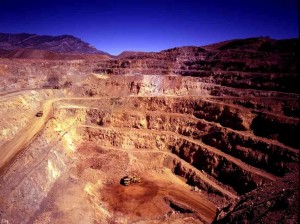In a letter to the editor of the Wall Street Journal, a reader from Arizona responds to American Resources Principal Daniel McGroarty’s op-ed “America’s Growing Minerals Deficit.”
Citing Canada-based Augusta Resources’ Rosemont copper mine project in southern Arizona as an example, the reader alleges McGroarty “overlooks one very important consideration. There isn’t any assurance that the U.S.-mined minerals will be used to meet manufacturing needs in the U.S.” He sees the main conundrum in that “the copper to be mined on U.S. soil by a foreign-owned company is expected to be sent to China for smelting, then made available on the world open market.”
In today’s globalized world, the majority of mining companies are based in other nations. The fact of the matter is that the United States benefits greatly from foreign direct investment to extract our resources. In recent years, foreign direct investment, the attraction of which is a key priority of the Obama Administration, has supported more than 2 million domestic manufacturing jobs, with workers “at majority-owned U.S. affiliates of foreign companies receiv[ing] 30% higher pay than non-FDI supported jobs.”
As for the mining sector specifically, the National Mining Association estimates that “U.S. mining in 2010 directly and indirectly generated more than 1.98 million U.S. jobs, $119 billion in U.S. labor income, [and] $225 billion in contribution to U.S. gross domestic product.”
There are a number of other reasons why harnessing our domestic resource potential is critical. While the “not in my backyard” crowd is quick to point to potential environmental damage associated with domestic mining, they fail to acknowledge that in order to meet domestic manufacturing needs, we otherwise have to rely on foreign imports with all strings attached – and that all too often means less stringent environmental standards or human rights abuses in supplier nations.
Moreover, the geopolitical nature of resource policy cannot be dismissed. China’s blatant willingness to use its near-total supply monopoly for Rare Earths as a retaliatory “weapon” illustrates the pitfalls of allowing a foreign nation to effectively control the entire supply chain.
The WSJ reader’s question of whether or not we can “keep U.S.-mined minerals for exclusive use in this nation” is besides the point – in a globalized world that cannot be, and is not the goal. But taking ourselves out of the equation and preemptively surrendering in the global race for resources by failing to develop what we’re blessed to have beneath our own soil should not be an option.
Regardless of where resources are being sent for smelting – the bottom line is this, as Daniel McGroarty has pointed out before:”If we stagger forward with our current system, let’s be honest and open-eyed about the outcome: We will perpetuate foreign dependencies that will impair our ability to bring the manufacturing supply-chain home to American cities and towns, forfeiting jobs and GDP and adding to our outbound balance of trade transfers. We will hand to nations who do not always wish us well leverage over our economy and – in the case of the many metals required for our advanced weapons systems – our national security. And we will surrender a large portion of the innovation-driven advances in high-tech and green-tech to nations that can offer access to metals and minerals the U.S. in many instances possesses but makes it impossible to mine.”
Is that really the future we want?





